Why do washed coffee beans taste sour? Flavor characteristics of washed Coffee

I don't know if you have ever seen such a scene in a coffee shop: the tasters don't know the information about the coffee beans. After the coffee is brewed, they immediately guess how to deal with it. "it's water washing."

This is because usually, washed coffee will show a clear sense of cleanliness and clarity. When medium and shallow baking is used, it is often with rising and stronger acidity, reminiscent of fruits eaten in some impressions, such as oranges and lemons. So when we buy coffee beans every day, if we like the sour taste, we will deliberately choose from the washing series.
So what causes washed coffee beans to have these flavors? Before we talk about the treatment, let's take a look at the structure of the coffee fruit.
Treatment = coffee fruit → coffee raw beans
If you cut the picked coffee fruit across, you can see that from the outside to the inside are peel, pulp, pectin layer, parchment, silver skin, and finally seeds (coffee beans). The so-called treatment is the process of extracting internal seeds from ripe fruit.
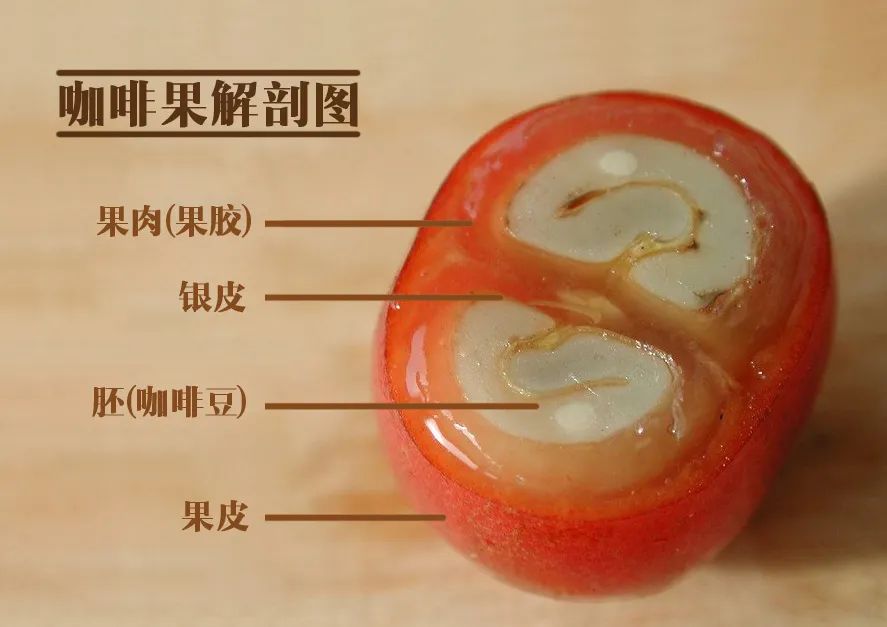
At first, there were only two ways to process raw coffee beans: "wet" treatment (Wet process) and "dry" treatment (Dry process). Among them, Dry process is the sun treatment, the coffee fruits are dried in the sun, and finally get seeds by crushing and shelling, which is simple and easy. And Wet process, also known as Washed process, in a broad sense is what we know as washing.
How are coffee beans washed?
To put it simply, washed coffee fruits will be floated after picking to remove impurities such as branches, leaves, bad fruits and so on. Then pour it into the machine for peeling (with pulp and a small drop of pectin), and the peas that have been stripped are still covered with pectin and feel slippery.
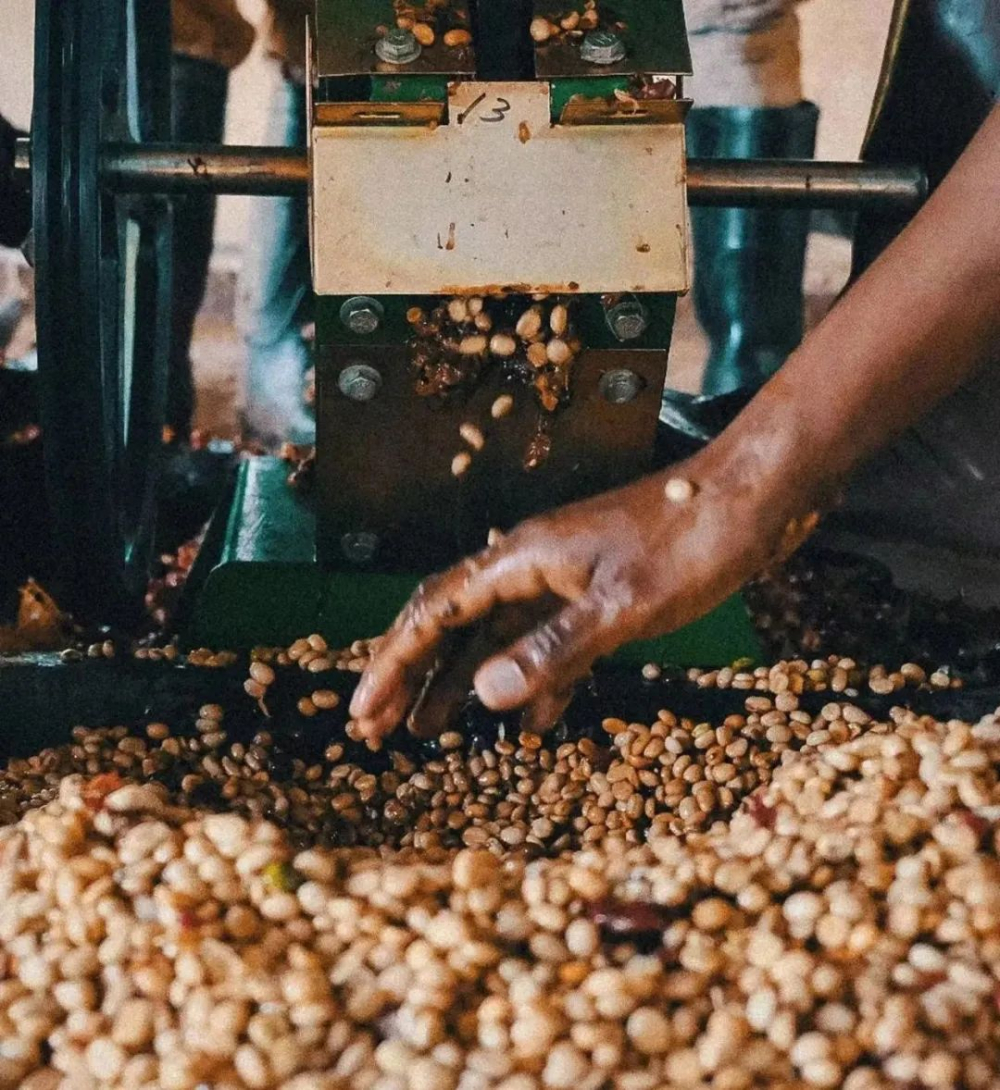
The beans are then poured into a fermentation tank and left for a night or more for anhydrous or aqueous fermentation in order to allow microbial fermentation to decompose the pectin on the shell. After fermentation, the coffee beans are washed with clean water to remove pectin, and the clean shell beans are dried or dried until the moisture content is reduced to 11% to 13%.
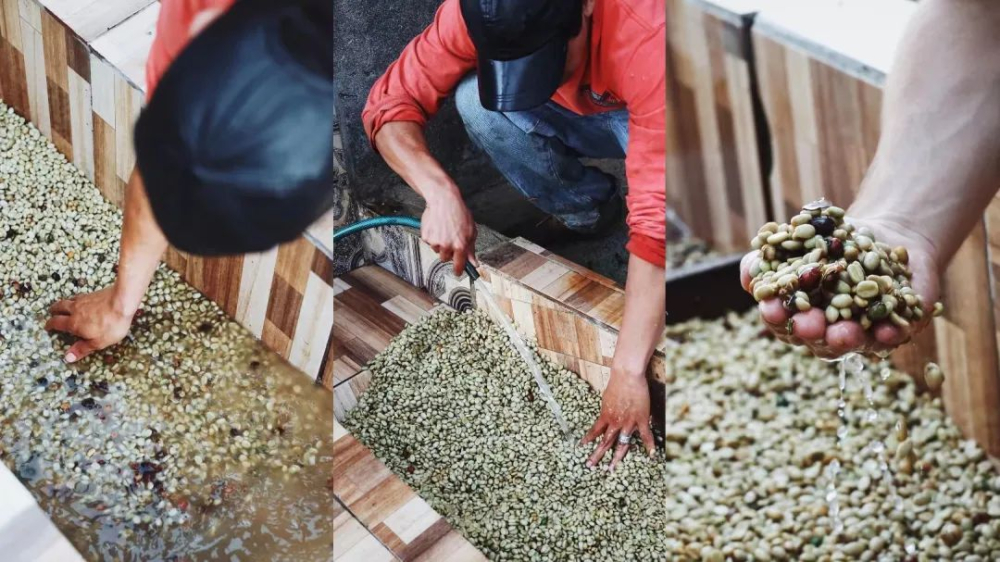
Due to the removal of pectin from the pulp before drying, the water content was greatly reduced, and the drying time was greatly shortened compared with the sun, which greatly reduced the dependence on the weather and improved the processing efficiency. From the producer's point of view, the performance of coffee beans produced by washing treatment is more stable, and the short drying time is very suitable for producing coffee with large quantity and good quality.
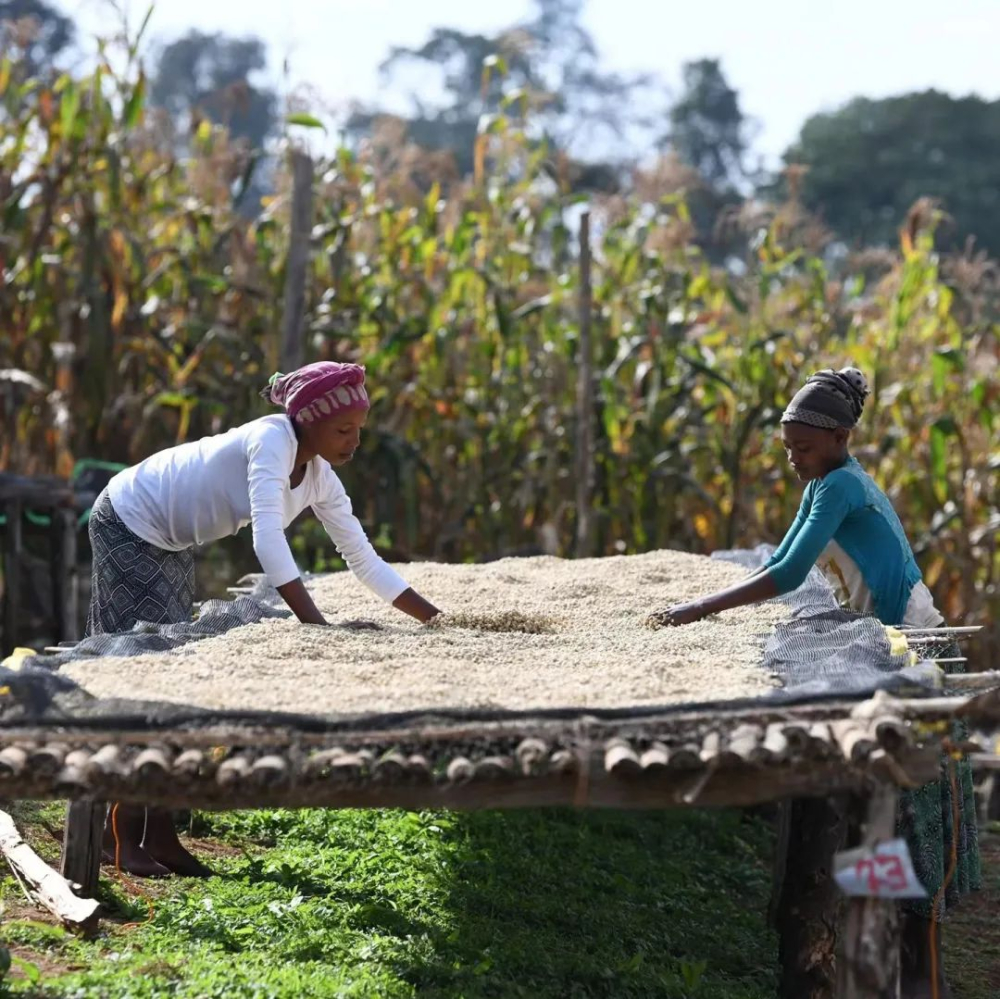
Why are washed coffee beans more sour?
No matter which treatment method is used, raw beans will undergo varying degrees of fermentation, that is, the use of microorganisms to convert sugar and organic matter in raw beans into other compounds, metabolism and the production of alcohol and carbon dioxide. Among them, aerobic fermented coffee beans, sugar will be more decomposed into gases, and produce a variety of organic acids. The wet fermentation (with water) in the traditional washing treatment belongs to semi-aerobic fermentation.
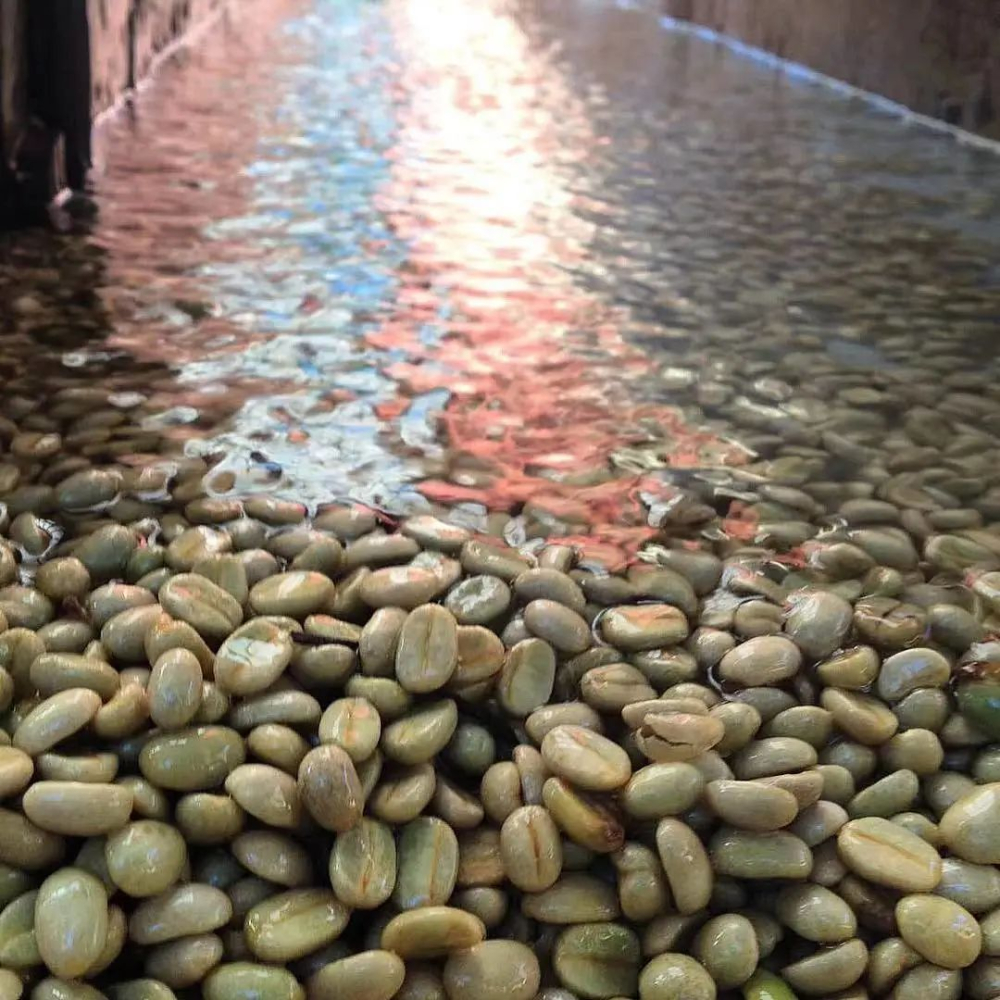
When it comes to this kind of wet fermentation, we have to apply it to the extreme Kenyan washing. The coffee is washed in Kenyan style and fermented for 24 hours each time. After fermentation, the coffee is washed and soaked in water for three consecutive times, exactly 72 hours of fermentation. Coffee with shell beans are fermented in a semi-aerobic environment to produce more abundant organic acids, such as citric acid, acetic acid and other acids that easily stimulate taste buds. When shallow roasting is used to retain most of the high-quality acidity, the coffee has a stronger berry acidity and a clean and full taste.
-END-
Front Street Cafe
No. 10 Baoqian street, Yandun road, Dongshankou, Yuexiu district, Guangzhou, Guangdong province

Important Notice :
前街咖啡 FrontStreet Coffee has moved to new addredd:
FrontStreet Coffee Address: 315,Donghua East Road,GuangZhou
Tel:020 38364473
- Prev

Introduction to the skill of how to practice the size and height of water injection around the circle of hand-brewed coffee
The water flow is intermittent, sometimes large and sometimes small, the water flow is not vertical, the circle is not round enough, and the water breaks through the powder wall. Have you ever been worried about these water control problems when you flush your hands at home? Obviously, the brewing parameters and water injection strategy are set in advance, but once the timing starts, the hand seems to become "out of control" and the current is always erratic.
- Next

The difference between honey treatment and sun washing what is raisin honey treatment?
Before you really knew the "honey treatment", did you ever think that the honey treatment was the fermentation of coffee beans with honey? But in fact, this is a treatment between the sun and washing, and after the popularity of honey treatment, there is a treatment called raisin honey treatment. Let's talk to you from Qianjie today.
Related
- What is the meaning of lactic acid fermentation with coffee bean treatment?
- How to judge the state of foam by sound?
- How does the latte pull out the unicorn pattern? Come to get for a little trick to improve the flower pull!
- Will flower pulling affect the taste of the latte?
- Do you know the history of coffee?
- The difference between honey treatment and sun washing what is raisin honey treatment?
- What kind of milk can a novice use to make coffee foam to keep the foam longer? The correct method and skills of milking tutorial sharing
- Why do washed coffee beans taste sour? Flavor characteristics of washed Coffee
- Introduction to the skill of how to practice the size and height of water injection around the circle of hand-brewed coffee
- How do beginners practice coffee flower drawing from scratch?

